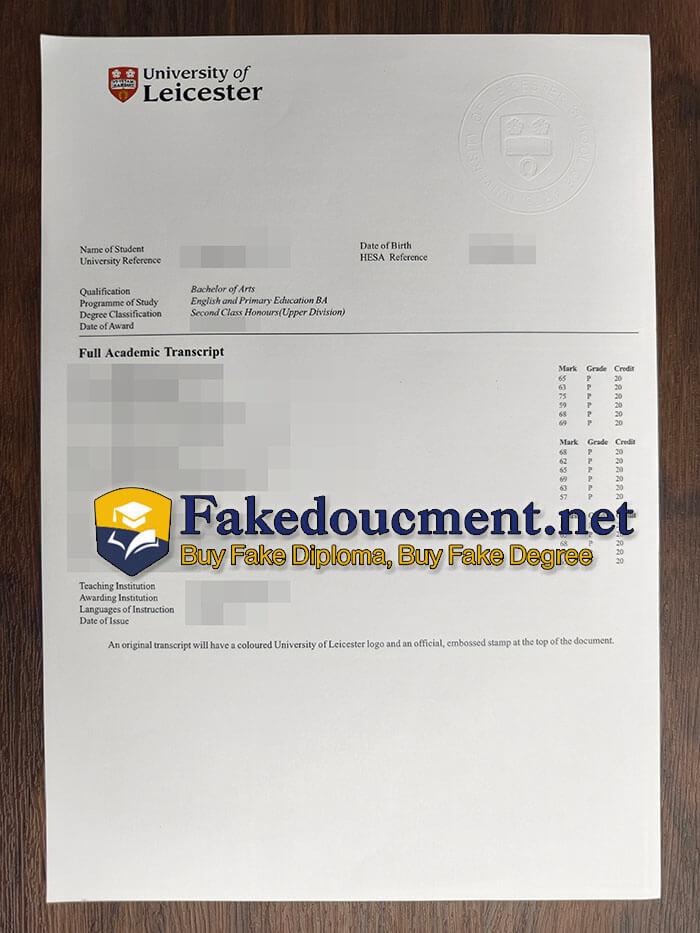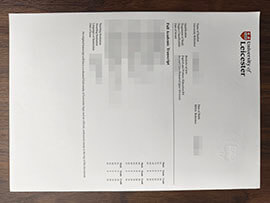
Where to order fake University of Leicester Transcript online? I would like to buy a realistic University of Leicester Transcript online, The best way to buy high-quality University of Leicester Transcript online? The University of Leicester is a public research university located in Leicester, England. It was founded in 1921 and is known for its research in areas such as genetics, space science, and archaeology.
The university offers a wide range of undergraduate and postgraduate programs across various disciplines, including arts, humanities, social sciences, science, engineering, and medicine. The University of Leicester is also known for its diverse student population and strong commitment to inclusivity and equality.
The first serious suggestions for a university in Leicester began with the Leicester Literary and Philosophical Society (founded at a time when “philosophical” broadly meant what “scientific” means today). With the success of Owens College in Manchester, and the establishment of the University of Birmingham in 1900, and then of Nottingham University College, it was thought that Leicester ought to have a university college too.
From the mid-19th century to the mid-20th century university colleges could not award degrees and had to be associated with universities that had degree-giving powers. Most students at university colleges took examinations set by the University of London.
In the late 19th century the co-presidents of the Leicester Literary and Philosophical Society, the Revered James Went, headmaster of the Wyggeston Boys’ School, and J. D. Paul, regularly called for the establishment of a university college However, no private donations were forthcoming, and the Corporation of Leicester was busy funding the School of Art and the Technical School. The matter was brought up again by Dr Astley V. Clarke (1870–1945) in 1912.
Born in Leicester in 1870, he had been educated at Wyggeston Grammar School and the University of Cambridge before receiving medical training at Guy’s Hospital. He was the new president of the Literary and Philosophy society. Reaction was mixed, with some saying that Leicester’s relatively small population would mean a lack of demand. With the outbreak of the First World War in 1914, talk of a university college subsided.
In 1917 the Leicester Daily Post urged in an editorial that something of more practical utility than memorials ought to be created to commemorate the war dead. With the ending of the war both the Post and its rival the Leicester Mail encouraged donations to form the university college. Some suggested that Leicester should join forces with Nottingham, Sutton Bonington and Loughborough to create a federal university college of the East Midlands, but nothing came of this proposal.
The old asylum building had often been suggested as a site for the new university, and after it was due to be finished being used as a hospital for the wounded, Astley Clarke was keen to urge the citizens and local authorities to buy it. Fortunately, Clarke quickly learned the building had already been bought by Thomas Fielding Johnson, a wealthy philanthropist who owned a worsted manufacturing business.
He had bought 37 acres of land for £40,000 and intended not only to house the college, but also the boys’ and girls’ grammar schools. Further donations soon topped £100,000: many were given in memory of loved ones lost during the war, while others were for those who had taken part and survived. King George V gave his blessing to the scheme after a visit to the town in 1919.






